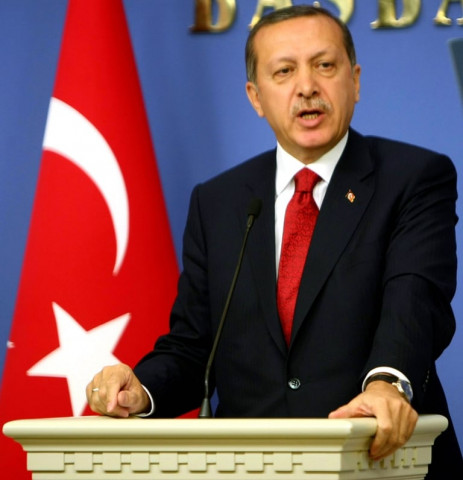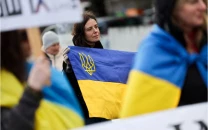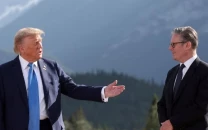Turkey wary of military intervention against IS
The Turkish parliament last week authorised the government to take military action against the IS extremists

Islamic State (IS) jihadists have advanced to the Syrian town of Kobane, just a few kilometres from the Turkish border yet still NATO member Ankara appears in no hurry to use force.
These are the main questions over why Turkish policy is so cautious, even as IS flags planted around Kobane are so close as to be visible from the other side of the border.
Turkey previously justified its low-key role by pointing to its concerns for Turkish hostages held by IS militants. But those hostages were freed last month, freeing Turkey's hands.
The Turkish parliament last week authorised the government to take military action against the IS extremists but so far no plans to carry out military operations have been announced, despite a build-up of Turkish forces on the border.
Ilter Turan, professor of political science at Istanbul's Bilgi University, said Turkey feared possible attacks by jihadists inside the country in retaliation for coalition airstrikes.
Any attack on the group led by Ankara would "significantly" bolster support for the jihadists in Turkey, Turan said.
Turkey is wary that military action around Kobane could bolster Syrian President Bashar al-Assad and strengthen Kurdish militants linked to Turkey's outlawed Kurdistan Workers Party (PKK), which has fought a 30-year insurgency for self-rule.
NATO-member Turkey has for years pressed for the ousting of Assad and wants the removal of Assad to remain a clear goal amid the battle against the IS.
President Recep Tayyip Erdogan has also asked the US-led coalition to establish a safe zone inside Syria to host refugees and ensure Turkey's security, an idea that may only be enforceable with foreign ground troops.
"Dropping tons of bombs from the air is only a temporary solution," Erdogan told parliament on October 1.
Some might think that Ankara would want to aid the People's Protection Units (YPG) fighters battling IS and give them the upper had in the battle.
But mindful of its own Kurdish minority, Ankara is worried a military intervention on its border could bolster the outlawed Kurdistan Workers Party (PKK) which is fighting for greater rights and autonomy in Turkey's southeast.
Kurds accuse the government of turning a blind eye to IS and refusing to allow Turkish Kurds to cross the border and fight in Syria.
Ankara also believes that the Syrian Kurds have ambiguous relations with Assad and should come out in clear opposition to him. This message was reportedly relayed this week to Syrian Kurdish leader Salih Muslim on a rare visit to Ankara.
"Right now Ankara is worried about everything that comes from Kobane: Mortar shells landing on its soil, Kurdish fighters taken to Turkish hospital, PKK fighters disguised as refugees. It's a nightmare for Turkey," Turan said.
Last week Taraf daily reported that the 49 hostages held by IS had been released in exchange for 180 jihadists, including militants held in Turkey.
Despite objections from the US, Turkey agreed to a swap deal. According to The Times of London three French nationals, two British, two Swedes, two Macedonians, one Swiss and one Belgian were among the jihadists released.
Erdogan acknowledged that Ankara had held "diplomatic and political" negotiations with the IS and no money had exchanged hands.
But Ankara bitterly rejects suggestions - most recently floated by US Vice President Joe Biden - that its policies helped encourage the rise of IS. The government insists it abhors terrorism in all forms.
The advance of IS militants in northern Syria towards the Turkish border stirred fears that a sovereign Turkish exclave inside Syrian territory might be their next target.
Erdogan has repeatedly said Turkey would strike back if the jihadists attacked Turkish troops stationed at the tomb of Suleyman Shah, the grandfather of the founder of the Ottoman dynasty Osman I. The land is considered Turkish territory under a 1920s treaty.
Turan said Turkey would most likely take action to defend its territory, but neither IS nor the Syrian regime had a "vested interest" in confronting the Turkish army - a force second only to the United States in the NATO alliance.



















COMMENTS
Comments are moderated and generally will be posted if they are on-topic and not abusive.
For more information, please see our Comments FAQ